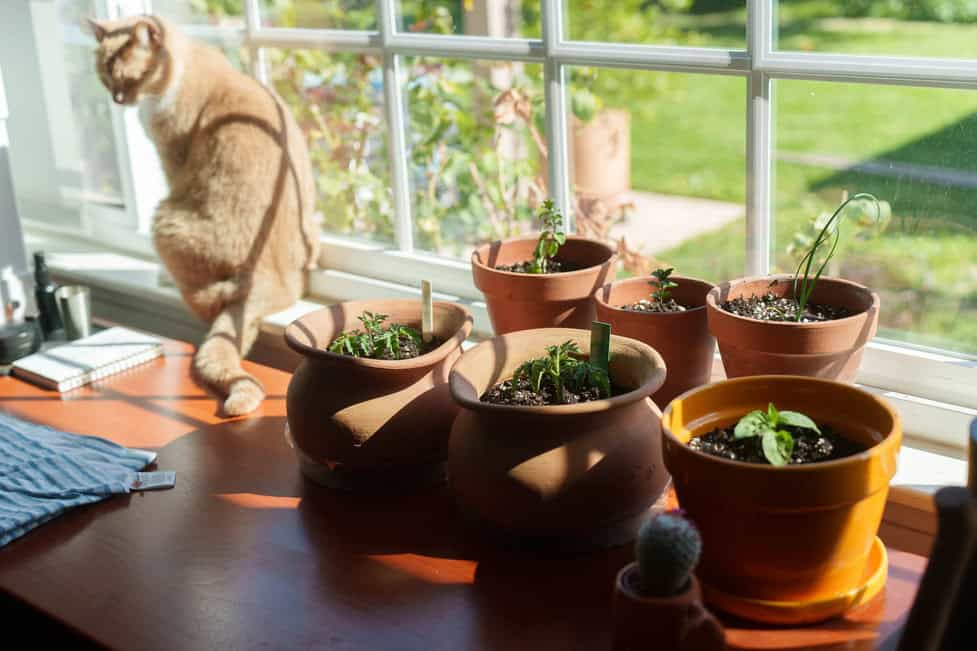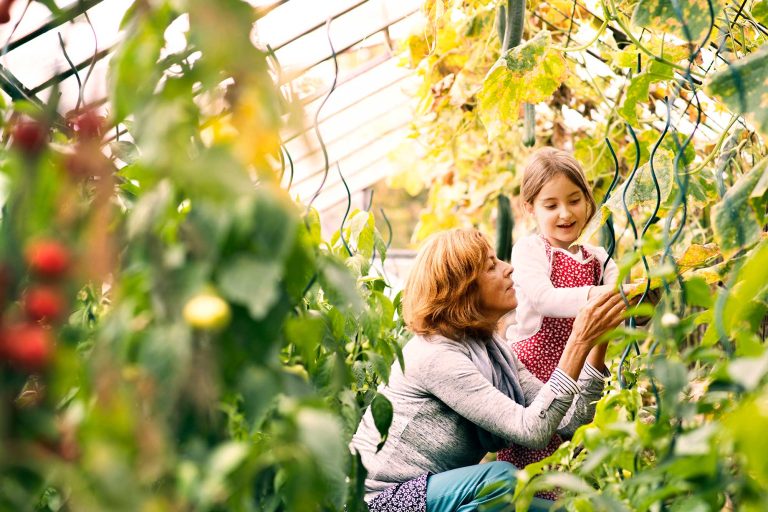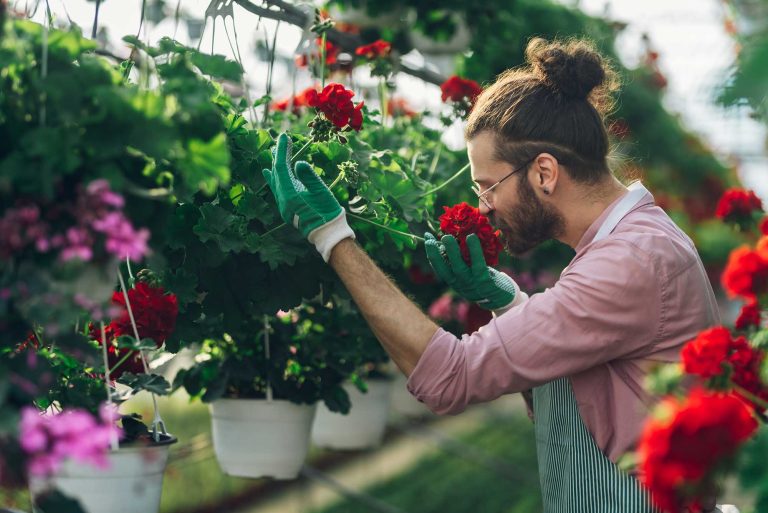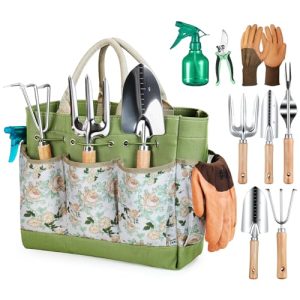Is your indoor herb garden under siege by your curious feline friend? Cats are natural explorers, and their curiosity can often lead them to your beloved plants.
If you’re tired of finding your herbs uprooted or nibbled on, you’re not alone. Many cat owners face the challenge of keeping their furry companions out of their indoor gardens. The good news is, you’re about to discover effective strategies that work wonders to protect your plants while keeping your cat happy and safe.
Imagine walking into your kitchen, greeted by the vibrant green of flourishing herbs, ready to be plucked for your next culinary creation. Now, picture this harmonious scene without the worry of paw prints or scattered soil. It’s possible, and you’re just a few steps away from making it your reality. You’re about to learn how to create a peaceful coexistence between your love for herbs and your love for your cat. Stay with us as we dive into practical tips and tricks that will not only safeguard your indoor herb garden but also keep your feline friend entertained and content. Ready to reclaim your green sanctuary? Let’s get started!

Credit: www.hungryhuy.com
Choosing Cat-resistant Herbs
Selecting herbs like rosemary, lavender, or mint can help deter cats from your indoor herb garden. These plants have strong scents that cats tend to avoid, keeping your herbs safe and flourishing.
Choosing the right herbs can help keep cats away from your garden. Some herbs naturally repel cats due to their strong scent or taste. Selecting these can protect your indoor garden without any extra effort. Here are some herbs that cats usually avoid.Lavender
Lavender has a strong fragrance that cats dislike. It’s a beautiful plant with a pleasant smell for humans. It can add a lovely scent to your garden while keeping cats at bay.Rosemary
Rosemary is another cat-resistant herb. Its woody aroma is not appealing to cats. This herb is easy to grow indoors and useful in cooking.Thyme
Thyme is a great choice for repelling cats. It has a strong scent that cats tend to avoid. It’s also a versatile herb for many dishes.Lemon Balm
Lemon Balm has a citrusy scent that cats don’t like. It’s a calming herb for humans but unappealing to cats. It grows well indoors and is easy to maintain.Peppermint
Peppermint is effective in keeping cats away. Its minty scent is refreshing for people but not for cats. It can also keep other pests out of your garden.Rue
Rue is less common but very effective. Cats usually avoid it due to its strong smell. It’s an easy-to-grow herb that can be a great addition to your garden.Garden Layout Strategies
Creating a safe indoor herb garden requires strategic planning. Cats are curious and love exploring new spaces. To keep them out, consider your garden layout. Effective planning can make all the difference.
Elevate Your Garden
Place herbs on high shelves or hang them. Cats find it hard to reach elevated spots. This keeps your plants safe and away from their paws. Hanging planters also save floor space.
Dedicated Garden Zone
Create a specific area for your herb garden. Use a room divider or screen. This separates the garden from the rest of the house. Cats will learn not to enter this zone.
Use Barriers
Physical barriers can deter cats. Place obstacles like decorative rocks around pots. You can also use a wire mesh around the garden. This prevents cats from accessing the herbs directly.
Plant Selection
Choose herbs that cats dislike. Rosemary and lavender are good options. Cats usually avoid plants with strong scents. This naturally keeps them at bay.
Using Physical Barriers
Place sturdy mesh around plants to block curious cats. Use tall pots to deter jumping and climbing. Secure screens around garden to create a protective barrier.
Keeping cats out of your indoor herb garden can be challenging. Cats are naturally curious and might find your herbs irresistible. Using physical barriers is an effective way to protect your plants. These barriers create a safe zone for your herbs. Let’s explore some practical solutions.Elevated Planters
Elevated planters keep your herbs out of reach. Cats often avoid high surfaces. Use sturdy stands or shelves to place your planters. Ensure the structure is stable and won’t tip over. This setup also adds a decorative touch to your space. Choose heights that are hard for cats to jump onto. Elevated planters can also improve herb growth by providing better light access.Mesh Covers
Mesh covers serve as a protective layer over your herb garden. They allow light and water to reach the plants. But they prevent cats from disturbing them. Choose mesh with small holes to keep paws out. You can easily make a mesh cover at home. Use a wire frame and attach mesh fabric. This barrier is both effective and affordable. It keeps your herbs safe without blocking airflow.
Credit: www.facebook.com
Natural Deterrents
Keeping cats away from your indoor herb garden can be simple with natural deterrents. Citrus peels, coffee grounds, or vinegar scents can effectively repel curious feline visitors. These natural solutions are safe for your plants and can ensure your herbs thrive without unwanted cat interference.
Keeping your feline friends away from your cherished indoor herb garden can be quite the challenge. Cats are naturally curious creatures, often drawn to the earthy scent of fresh herbs. However, using natural deterrents can be a safe and effective way to protect your plants. These methods are not only eco-friendly but also ensure your cats stay unharmed. Let’s dive into some practical solutions that can help you maintain your indoor oasis.Scent-based Repellents
Cats have a keen sense of smell, which can be your ally in keeping them at bay. Certain scents are naturally off-putting to cats, making them ideal for deterring your feline friends from your herb garden. Citrus peels are a great option. Simply scatter lemon or orange peels around your plants. Their strong aroma is usually disliked by cats and can effectively keep them away. Another scent to consider is lavender. You can place small sachets of dried lavender around the pots. The calming scent is pleasant to humans but tends to repel cats. Have you tried using vinegar? Its pungent smell can deter cats. Place a small bowl of vinegar near your herb garden, and watch them steer clear.Safe Sprays
Creating a safe spray is another practical method to keep your cats from nibbling on your herbs. A simple mix of water and essential oils can do wonders. Combine water with a few drops of citrus essential oil, and lightly spray around your plants. This creates a subtle barrier that cats typically avoid. Consider using a peppermint spray. Mix peppermint oil with water and spray the solution around your garden. Its refreshing scent is often unpleasant for cats, encouraging them to stay away. Do you have any experience with garlic spray? Though it may not smell delightful to you, it’s effective in deterring cats. Blend garlic cloves with water and spray it around the herb garden. This natural solution is safe for plants and annoying for cats. Which of these deterrents are you going to try first? Keeping your indoor herb garden safe from curious cats can be as simple as using what you already have in your kitchen!Training Techniques
Training your cat can keep them away from your indoor herb garden. Cats are curious creatures. They love to explore and sometimes nibble on your plants. But with some patience and the right techniques, you can teach them to leave your herbs alone. Here are some effective training techniques.
Positive Reinforcement
Reward your cat for good behavior. Use treats or gentle petting. This builds a positive connection. Praise your cat when they ignore the herbs. Consistency is key. Do this each time they behave well around the garden. Over time, your cat will learn that staying away from the herbs means rewards.
Redirecting Attention
Provide your cat with alternatives. Offer toys or a scratching post nearby. This distracts them from your plants. Use catnip toys to entice them. Keep their favorite items near the garden. When they go for the herbs, gently move them to the toy. This teaches them that the toy is more fun than your garden.

Credit: www.facebook.com
Alternative Cat-friendly Spaces
Create a cozy perch near a sunny window to divert your cat’s attention. Scatter cat-friendly plants like catnip or wheatgrass away from your herbs. These strategies can help keep curious paws out of your indoor herb garden.
Creating a cat-friendly space is not only a great way to keep your feline friend away from your indoor herb garden, but it also enhances their living environment. Cats are naturally curious creatures, and they crave stimulation and comfort. By offering them their own dedicated area filled with enticing elements, you can encourage them to stay out of your precious herbs.1. Design A Cozy Cat Corner
Transform a small area of your home into a cat oasis. Add a soft bed, some toys, and a scratching post to keep them entertained and comfortable. Consider placing it near a window so they can enjoy bird-watching.2. Introduce Cat Grass
Cats love to nibble on greenery, and cat grass is a safe and healthy option for them. Plant some in a small pot and place it in their designated space. This can satisfy their craving for greens and distract them from your herbs.3. Utilize Vertical Space
Cats adore climbing and perching up high. Install shelves or a cat tree to give them vertical exploration options. This not only entertains them but also keeps them away from your horizontal garden setup.4. Create A Sensory Zone
Engage your cat’s senses by adding elements like a cat fountain or toys with bells. These can provide hours of entertainment and keep them occupied, reducing their interest in your herb garden.5. Rotate Toys Regularly
Keep your cat’s interest piqued by changing their toys every few weeks. Introduce new textures and sounds to maintain their curiosity. This regular rotation can help in diverting their attention from the herbs.6. Use Catnip Wisely
Catnip can be a great way to lure your cat away from your herbs. Sprinkle a little on their toys or bedding in their designated area. However, be mindful not to overuse it, as some cats can become immune to its effects.7. Offer Interactive Playtime
Dedicate time each day for interactive play with your cat. Use wand toys or laser pointers to engage them. This not only strengthens your bond but also tires them out, reducing their curiosity about your garden. By creating these alternative spaces, you can satisfy your cat’s needs and protect your indoor herb garden. What unique ideas have you tried to keep your cat entertained and away from your plants?Maintaining Garden Health
Sprinkle citrus peels around the indoor herb garden to deter cats. Cats dislike the scent of citrus and will avoid it. Another way is to use aluminum foil. Cats dislike the sound and feel under their paws. These methods keep your herbs safe and your cats away.
Maintaining a healthy indoor herb garden demands attention. Cats can be curious explorers, potentially threatening your plants. Ensuring your herbs thrive requires proactive measures to keep felines at bay. This involves vigilance, adaptability, and thoughtful planning.Regular Monitoring
Consistent observation is key. Check your garden daily for signs of disturbance. Look for broken stems or displaced soil. Early detection helps prevent further damage. Consider installing cameras if you can’t monitor often. This way, you catch feline intruders in action.Adjusting Strategies
Flexibility in your approach matters. If cats persist, change your tactics. Experiment with different repellents. Try citrus peels or vinegar sprays. Adjust plant placement to less accessible areas. Use barriers like chicken wire or netting. Tailor strategies based on your garden’s layout and the cat’s habits.Frequently Asked Questions
How Can I Protect Herbs From Cats Indoors?
To protect your herbs from cats, use deterrents like citrus peels or install barriers such as mesh covers. Cats dislike certain smells, so placing lemon or orange peels around your herb garden can help. Alternatively, use physical barriers to prevent cats from accessing the plants.
What Scents Deter Cats From Herb Gardens?
Cats are deterred by citrus, lavender, and peppermint scents. Use essential oils or fresh peels of these scents around your garden. Sprinkling lavender or peppermint leaves around your herbs can also help keep cats at bay. These scents are natural and safe for your plants.
Are There Cat-friendly Herbs I Can Plant?
Yes, you can plant cat-friendly herbs like catnip and valerian. These herbs are attractive to cats and can divert their attention away from your other plants. By offering a designated area for these herbs, you can keep cats entertained and away from your main herb garden.
Can I Train My Cat To Avoid The Garden?
Training a cat involves consistent reinforcement and deterrents. Use positive reinforcement to encourage good behavior, and employ deterrents to keep them away from herbs. Provide alternative play areas or toys to distract them from the garden. Training requires patience and consistency.
Conclusion
Keeping cats out of your herb garden is achievable. Use simple tricks. Try placing citrus peels around plants. Cats dislike the smell. You can also use aluminum foil. It feels strange to them. Another option? Create barriers with wire mesh.
It protects plants effectively. Remember, consistency is key. Check your garden regularly. Adjust as needed. Happy gardening! Your herbs will thrive without feline interference. Enjoy fresh herbs. And a peaceful home. Both you and your cats can coexist happily. Gardening should be fun and stress-free.
Keep experimenting. Find what works best for you. Your garden deserves protection.








